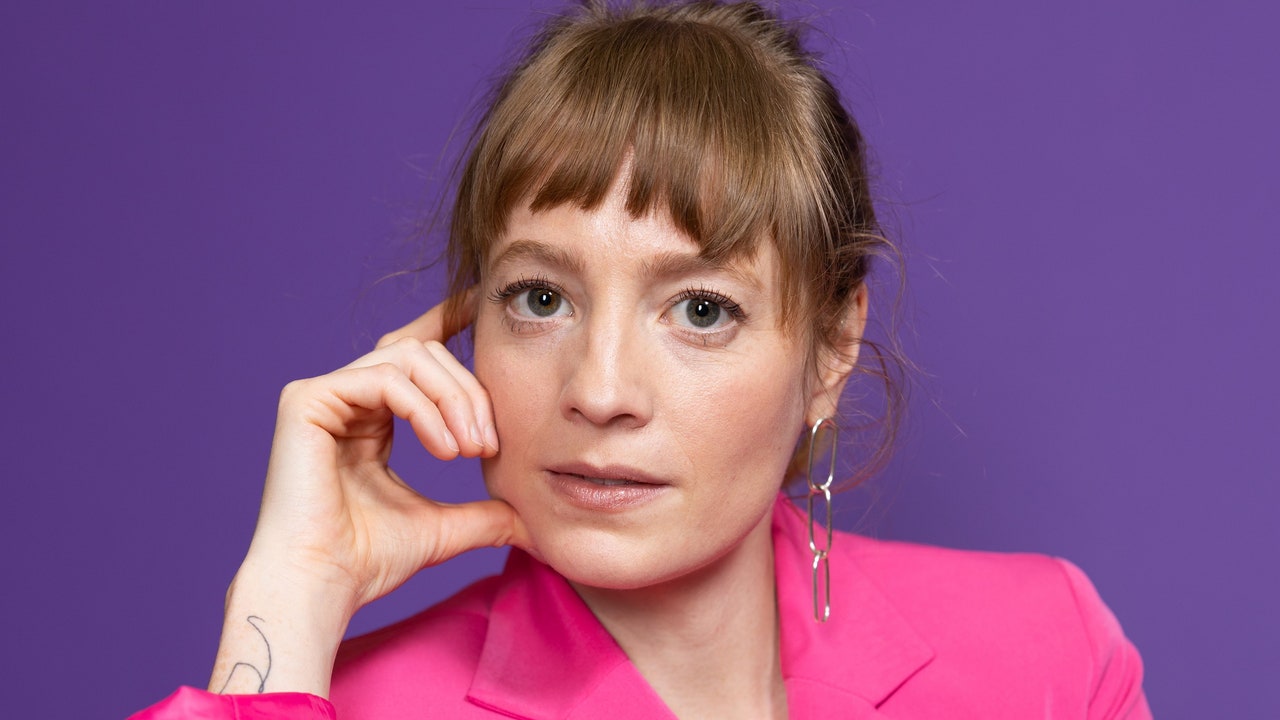Benesch projects a level of poise and savvy that’s to be expected of an actor who broke out early and abruptly, before needing to figure out how to make this kind of life work for her. She didn’t come from money and didn’t have anyone giving her advice. During the campaign for The White Ribbon, which was nominated for an Oscar, she felt “really unprotected,” thrown into the dizzying world of intensive press interviews and glamorous premieres.
The scrutiny came in part because Benesch, portraying the sweet-natured nanny Eva, made a vivid impression and emerged as a talent to watch. “I knew nothing about publicity, nothing about dress codes and all of that stuff—and I was too young,” she says. “If you are thrown into something as insane as the Oscars or red carpet in Cannes, you need someone to [tell you] you need to be dressed well, and that that entails you paying someone or having someone give you stuff. I had no one to tell me, ‘This is how it works. These people do this job. Those people do that job.’ I needed someone to tell me that.’”
She didn’t exactly have a typical first filming experience, either. This is Haneke we’re talking about. “Even though people tell you this is not what it’s usually like, you then arrive at the next set and you’re flabbergasted by the reality of what other films are like,” she says. Haneke hired an acting coach for Benesch, introducing her to method acting—a process she realized she did not care for, in real time. (“I found it a little off-putting because it’s just so serious.”) The director’s demanding nature also proved intimidating, even as he was “nothing but sweet” to Benesch directly. “If something didn’t work out by the time we got to set, Michael would have a fit,” she says. “I saw it twice and it was really scary.” (She and the director remain on friendly terms, and had lunch last month.)
Coming out of all that, then, Benesch needed to be decisive. She wanted to commit to acting but needed to take ownership. Her parents couldn’t pay for drama school, so Benesch worked and took out loans to get herself through a program in London—which she considers her real, official start as a professional performer, despite her auspicious debut with Haneke. “I had some people, especially in the German industry, tell me that it was stupid to go and leave and I wouldn’t then be able to get back in the industry and all that stuff,” she says. “But I learned most about the job at drama school. It’s to do with a moving body and space that walks and talks at the same time. It sounds so simple, but breaking it down to that, that’s my foundation now.” Toward the end of her studies, she booked a regular gig on Babylon Berlin, starring on the hit series for three seasons.
With a breakout like The White Ribbon, typecasting naturally follows. Benesch was most likely to get cast in “traumatic” projects after that role, and because she’d gone into debt to pursue an acting career, she couldn’t be especially choosy. She laughs at the memory of promoting projects she didn’t feel particularly proud of. “I’ve definitely done jobs that I wouldn’t have chosen because I needed to pay stuff back,” she says. Babylon Berlin kept her in the ingénue category, too, but the depth and success of that project stretched Benesch’s talents, allowed her to make good on her training and put her back in the spotlight.
There’s one way in which White Ribbon brought Benesch directly to The Teachers’ Lounge, though. About a decade ago, the director of the latter film, Çatak, met Benesch as a student filmmaker. Benesch was part of a panel giving out awards to a handful of people, including him. “As I was leaving, he came up to me and asked me, ‘What was it like to work with Haneke?’ and I apparently said something that Haneke always said, which is, ‘You need to know your lines and be in the moment, or the rest doesn’t matter,’” Benesch recalls. “Ilker took that, and it’s been one of his mantras when he started filmmaking.”




